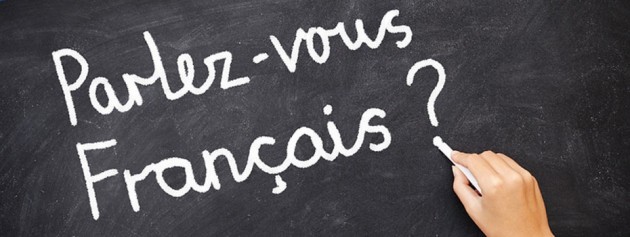Boycotting English: France’s Reaction to a Linguistic Invasion
English as today’s lingua franca can be a double-edged sword; not only does it make it easier for me personally to travel and communicate with people from different countries, but it makes it easier for people of all nationalities to do so, safe in the knowledge that wherever they go, someone somewhere is bound to speak a little bit of English. However, this also places the spotlight on the hegemony the English language has over the rest of the world, bringing with it an un-asked for cultural invasion as our products, movies, and advertising goes global.
It’s common knowledge how European countries like Germany and France are using English words in their own vernacular, ex. le weekend. In some Middle Eastern countries, Arabic is verging on a second language, with educated youths switching back and forth in conversation between English and Arabic (the hybrid language they call Arabizi, a combination of Arabic and Inglizi). The Politecnico di Milano, one of Italy’s oldest and most esteemed universities, has declared that, starting in the fall of 2014, all their graduate-level courses will be taught solely in English. Scholars and linguists have argued that diplomacy and international relations are unfairly balanced toward the English-speaking crowd, and that this causes misunderstandings, discrimination, and worse.
In France, a country notoriously proud of their language, organizations for the preservation of French culture and language are taking up arms against this English intrusion. Former president Jacques Chirac once led a walkout of his fellow Frenchmen from an EU summit after one of them made the social blunder of speaking in English. More recently, the French government has urged nationals to abandon the use of such English words as email, blog, hashtag, supermodel, and takeaway in favor of French replacement terms.
 Michael Serres, a French philosopher, is urging his compatriots to take it one step further and actually boycott all instances of the English language they see. He states, “There are more English words on the walls of Toulouse than there were German words during the Occupation,” and is calling for the French to refuse to buy products advertised in English, or to go see Hollywood movies that aren’t translated. Many are hailing Serres for championing the French language in the face of a relentless juggernaut, pointing out that the flood of English in their country goes even deeper than pop culture. In 1997, 40% of documents at the European Commission were written in French, while 45% were written in English; last year those statistics were 11% French and 72% English.
Michael Serres, a French philosopher, is urging his compatriots to take it one step further and actually boycott all instances of the English language they see. He states, “There are more English words on the walls of Toulouse than there were German words during the Occupation,” and is calling for the French to refuse to buy products advertised in English, or to go see Hollywood movies that aren’t translated. Many are hailing Serres for championing the French language in the face of a relentless juggernaut, pointing out that the flood of English in their country goes even deeper than pop culture. In 1997, 40% of documents at the European Commission were written in French, while 45% were written in English; last year those statistics were 11% French and 72% English.
While many are dramatically terming the influx of English as an “Anglo-Saxon ploy” and “planned assassination of the French language,” accusing President Nicolas Sarkozy as scheming to make France a completely bilingual country, others are applauding increased use of English as the way of the future. International companies in particular, knowing that increased use of English will give them an advantage in the business playing field, are pushing for documents and meetings to be written and conducted in English.
In my own personal experience—that being which it’s very rare to meet an educated person who doesn’t have at least a conversational level of English—I’ve found that French people of my generation are more likely to speak as their second language Spanish, German, Italian, anything except English. Is this wave of Anglophobia the last heroic defense of an endangered cultural identity, or is it backwards thinking in the light of changing times? (Remember, the term lingua franca used to be literal.) Various English-speakers have suggested we could follow suit and cut French words out of our language: coup, haute couture, malaise, and so on, engaging in a language war that could lead down many a dark and difficult path.
What do you think about boycotting a specific language?
